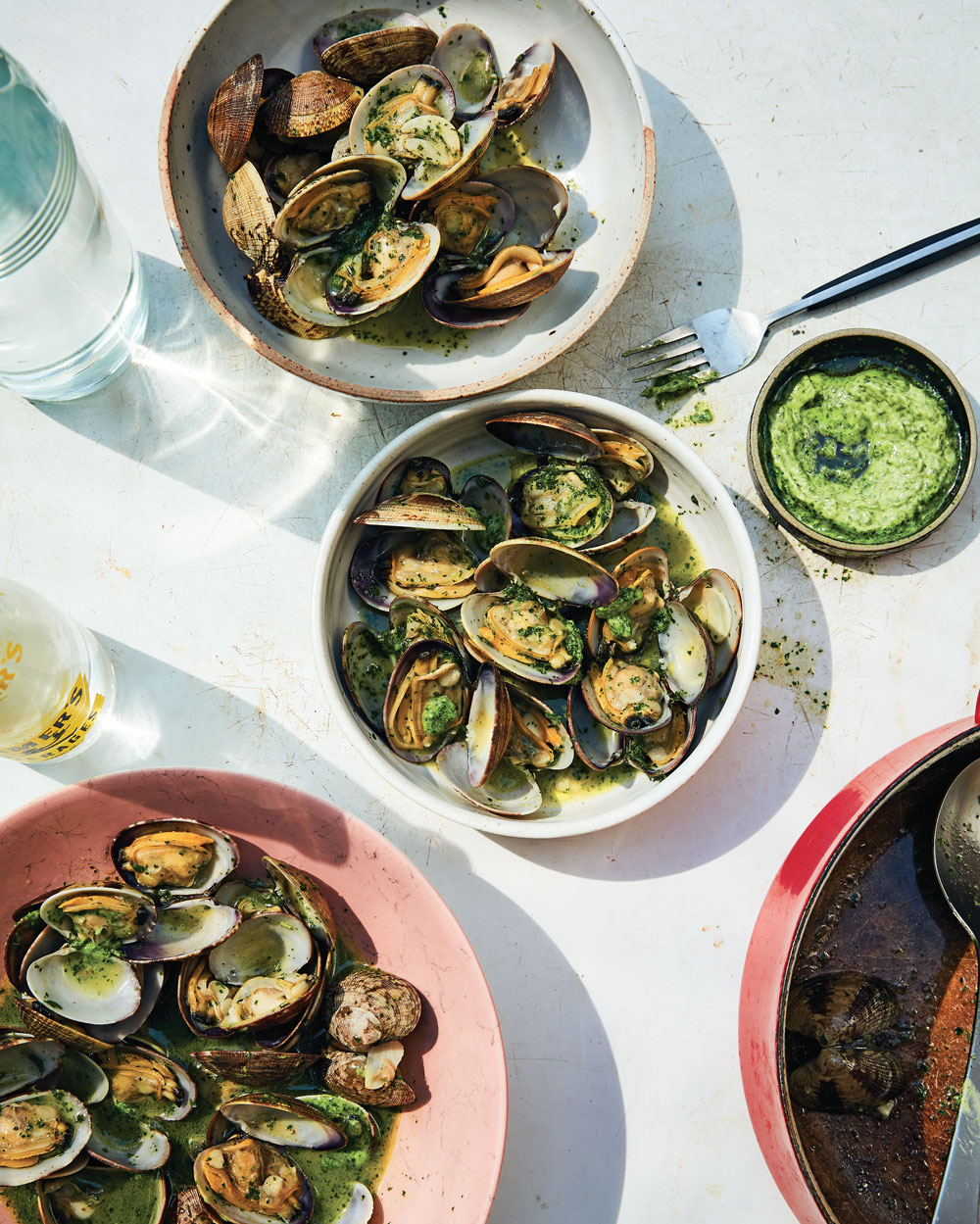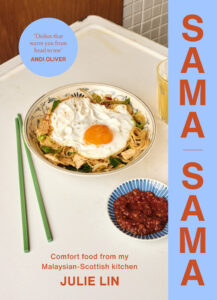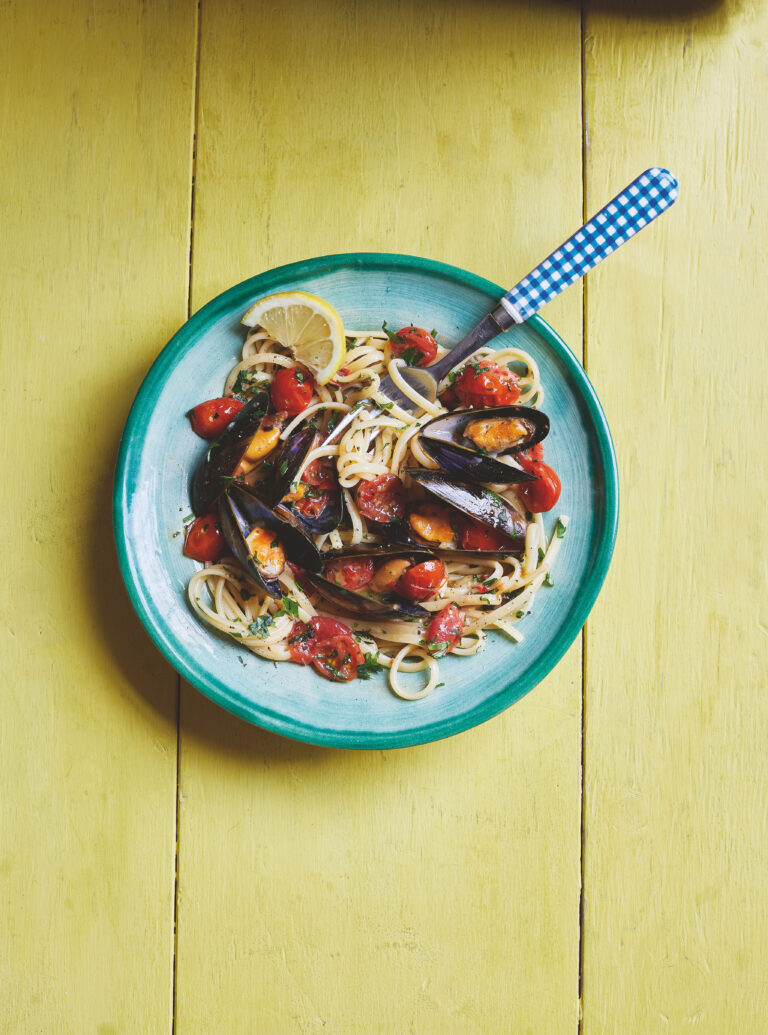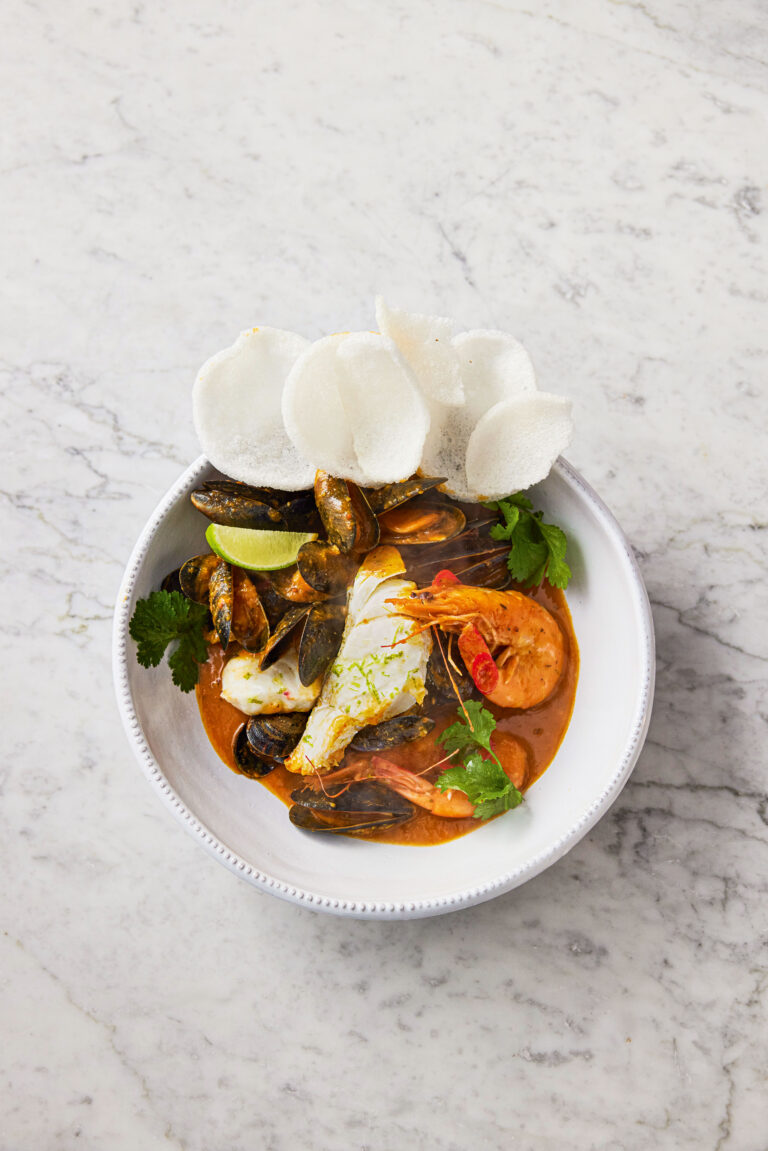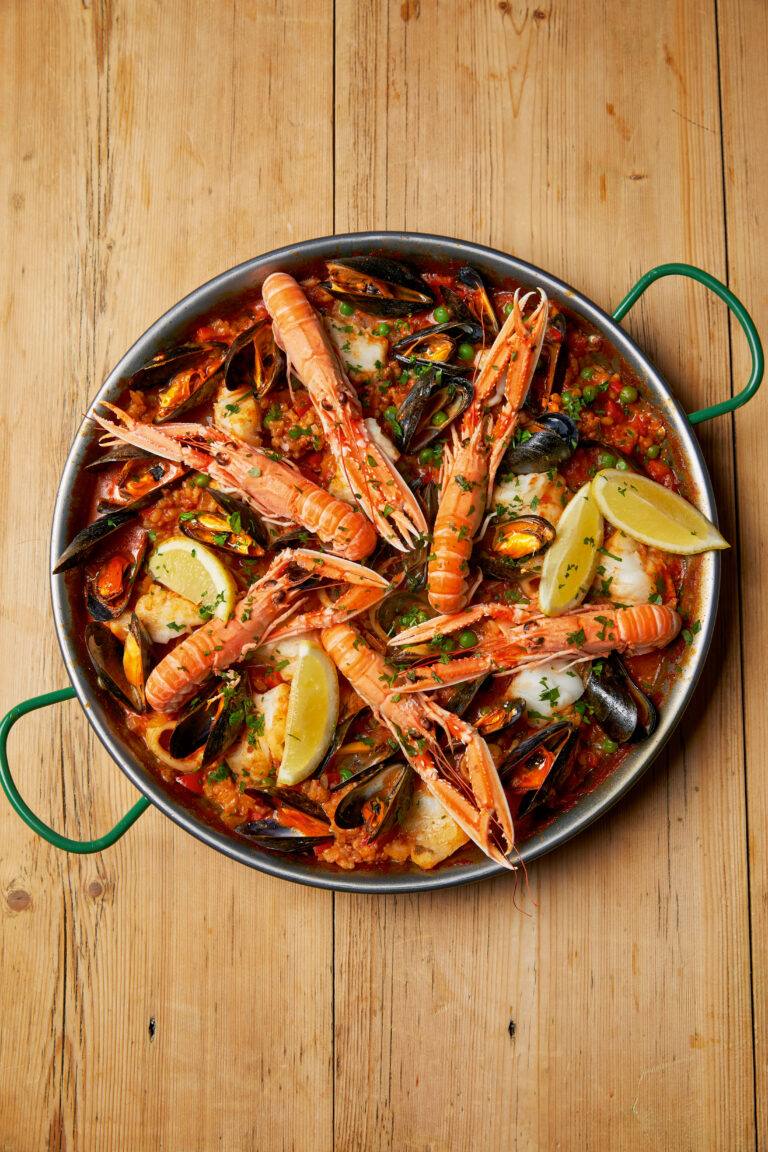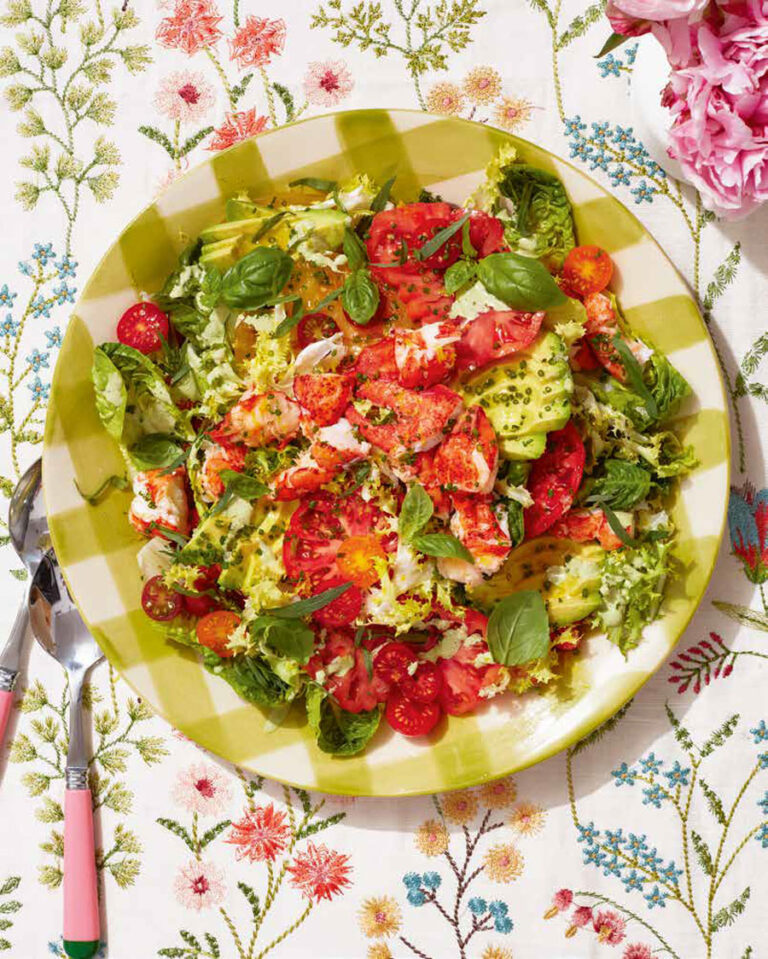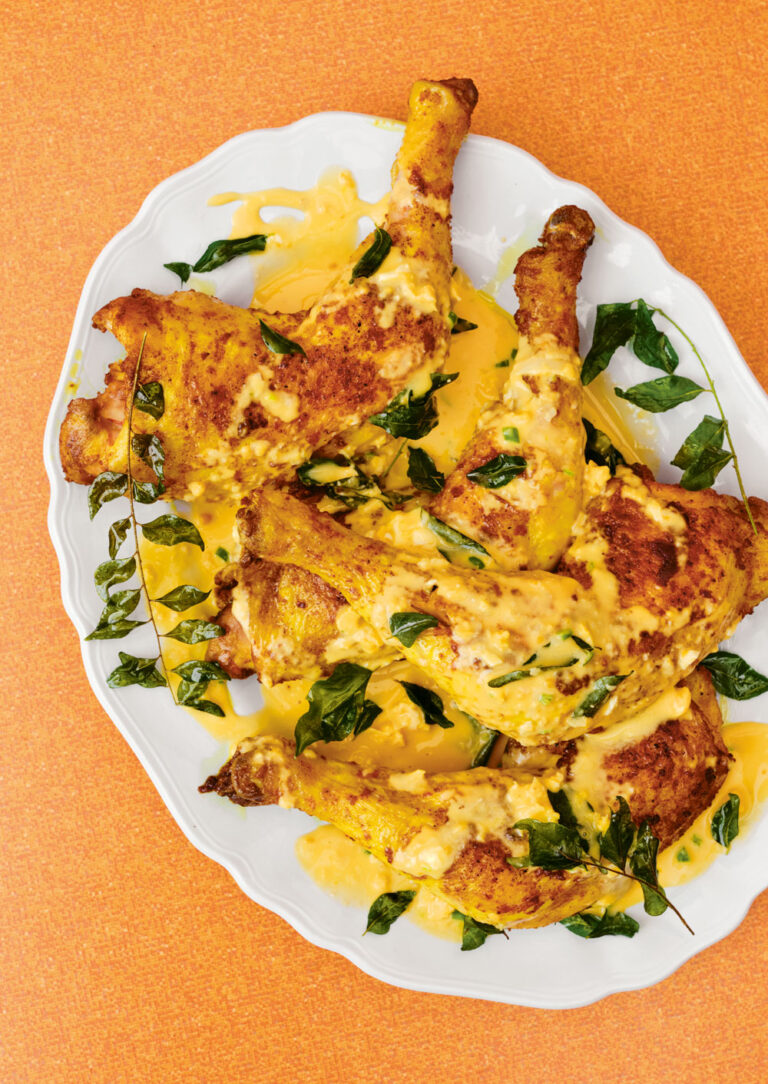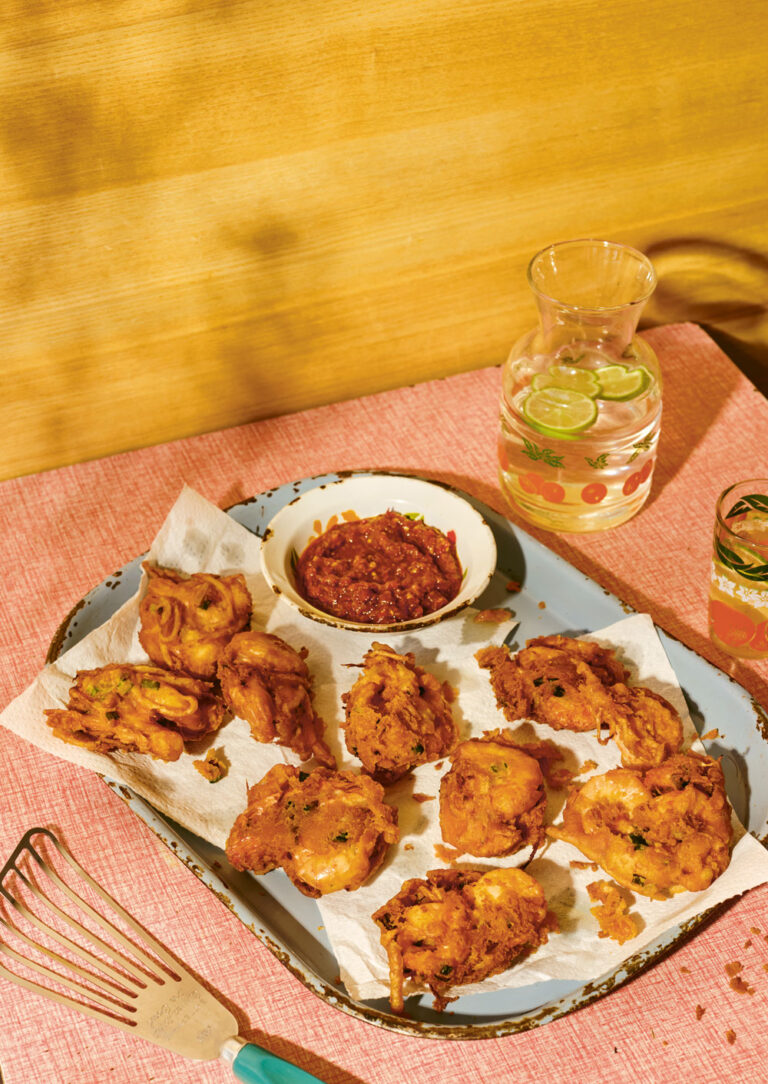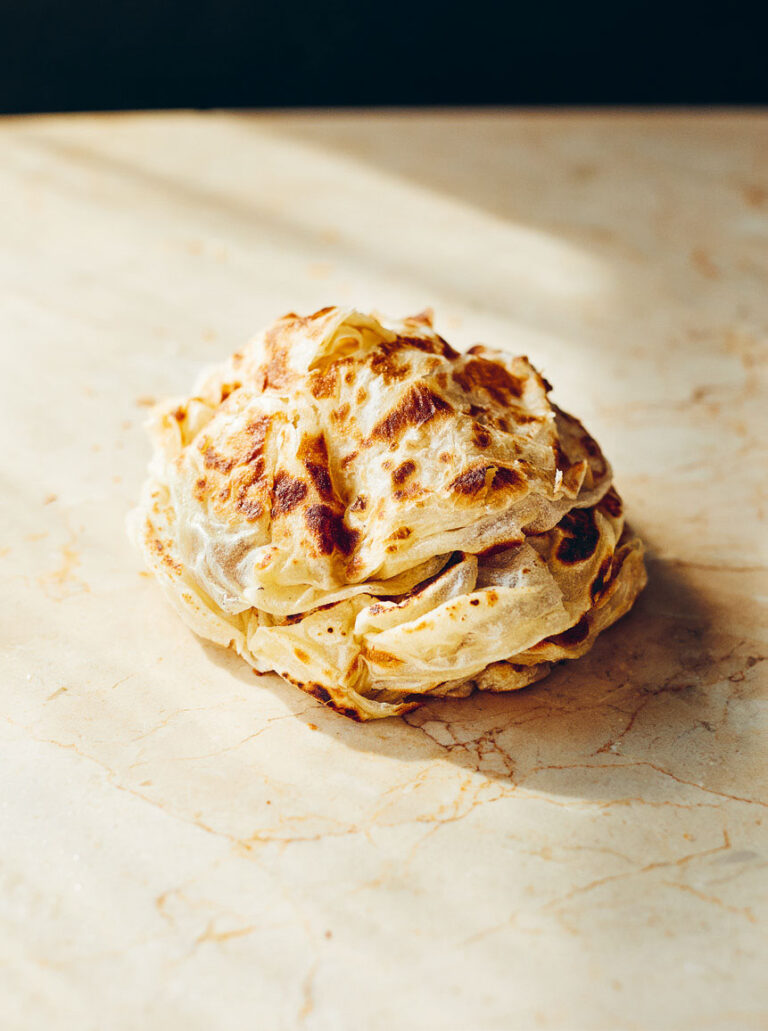Sambal Mussels
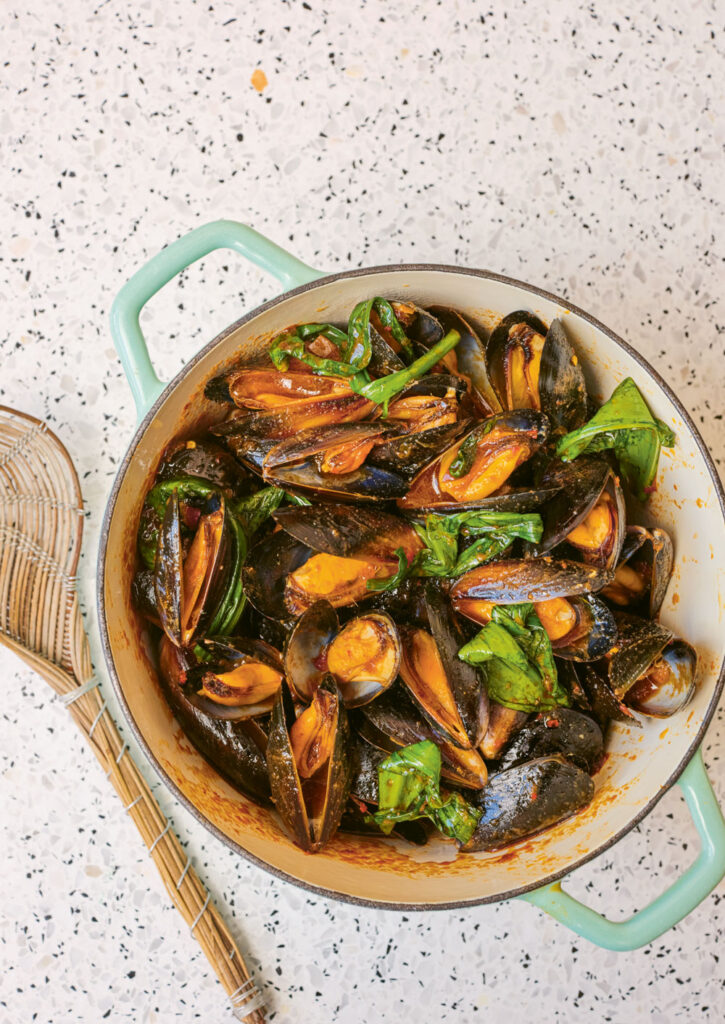
Julie Lin’s inspired twist on the Malaysian dish Sambal Lala features mussels steamed in a wonderfully fragrant sauce made with a rich spice paste that includes sambal belacan, lemongrass and plenty of garlic.
Introduction
Sambal Lala, or chilli clams, is a beloved dish in Malaysia, a staple in the vibrant culinary landscape of Melaka. Its rich, spicy flavours have captivated many, including myself, and inspired by my Scottish roots, I’ve added a twist to this traditional recipe. Scotland is renowned for its abundant and sustainable mussel populations, making them one of the most environmentally friendly shellfish options available.
My fondest memories of mussels are intertwined with visits to my adopted Grandad’s (my seanair, in Scottish gaelic) house near Loch Melfort. We would stroll along the beach, picking fresh mussels to pair with wild garlic for a truly local feast. These sambal mussels blend those cherished moments from my Scottish heritage with the culinary traditions of my Malaysian roots.This dish is an homage to both my Grandad and my Amah, my grandparents from different sides of the globe. Their influences and the fusion of their cultures in my life inspired this recipe, bridging the gap between Malaysia and Scotland in a delicious and meaningful way.
Ingredients
| 1kg | fresh mussels in shell |
| 200ml | rapeseed oil |
| 150ml | tamarind water |
| 3 tbsp | kecap manis (sweet soy sauce) |
| 2 tbsp | gula melaka palm sugar (or dark brown soft sugar) |
| 100g | wild garlic leaves |
| lime juice, to taste | |
| ½ bunch of | fresh Thai basil leaves, torn, to serve |
| salt, to taste | |
| coconut rice, to serve | |
| For the spice paste: | |
|---|---|
| 7 | banana shallots, peeled and roughly chopped |
| 15 | garlic cloves, peeled |
| 20 | dried red chillies, soaked in warm water, drained and mostly deseeded (depending on how spicy you like it) |
| 3 | fresh long red chillies, roughly chopped |
| 3 | lemongrass stalks, cleaned, trimmed and roughly chopped |
| 1 heaped tbsp | Sambal Belacan (see ingredients below), toasted |
| 2 tbsp | gula melaka palm sugar (or dark brown soft sugar) |
| 1½ tbsp | salt |
| For the Sambal Belacan (makes 1 jar): | |
| 300g | dried red chillies |
| 1 tbsp | belacan (for a vegan version, replace with 1 tsp white miso paste mixed with 1 tsp Lao Gan Ma black bean chilli sauce) |
| 1 | fresh long red chilli, deseeded and finely chopped |
| 30 | garlic cloves, peeled and chopped |
| 3 | lemongrass stalks, cleaned and trimmed |
| 150ml | flavourless oil (use an oil with a high burning temperature, such as rice bran or rapeseed) |
| 4 tbsp | coconut oil |
| 120g | white sugar, or to taste |
| 1 tsp | salt, or to taste |
Method
First, make the Sambal Belacan. Begin by soaking the dried red chillies in warm water until they soften, which usually takes 20–30 minutes. Once softened, drain the chillies and remove the seeds. (This reduces the heat level to make the sambal more palatable.)
Meanwhile, heat a dry pan over a low heat. Add the belacan and toast until it becomes fragrant. Be cautious as it can have a strong smell. Set aside.
In a blender or food processor, combine the soaked red chillies, chopped fresh chilli and garlic cloves. Finely chop the lower, softer parts of the lemongrass stalks and add those too. Blitz to a fine paste. If needed, add a splash of water to assist the blender.
Heat both oils in a wok or large pan over a medium heat. Once the oil is hot enough, carefully add the chilli paste to the pan. It might splatter, so be cautious and consider using a splash guard. Stir in the toasted belacan and cook the mixture, stirring frequently, for about 10–15 minutes, or until the paste darkens to a ruby red colour and the oil begins to separate from the mixture.
Add the sugar and salt to the paste, then continue to cook while stirring for a further 5–10 minutes. The sambal should thicken and become fragrant.
Taste the sambal and adjust the seasoning with more salt or sugar, as needed, but be mindful that the sambal will become sweeter once it cools down.
Remove the sambal from the heat and allow it to cool to room temperature. Once cooled, transfer the sambal to a sealed sterilised jar or airtight container. The sambal can be stored in the fridge for up to a month. You will need 1 tbsp for this recipe, toasted.
Next, prepare the mussels. Begin by carefully scrubbing the mussels and de-bearding each one. Wash and clean the shells. Discard any that are open or don’t close with a sharp tap.
Next, make the spice paste. Place the shallots, garlic, dried and fresh chillies, lemongrass and toasted Sambal Belacan in a food processor or blender, then blitz to a fine paste. Transfer to a bowl and stir in the sugar and salt.
When ready to cook, place a large wok over a high heat. Once hot, add half of the rapeseed oil to coat the bottom of the wok and allow it to reach a medium heat. Add the spice paste to the wok and stir-fry over a medium-low heat for 15 minutes, moving the paste continuously so it doesn’t burn. Now, add in the rest of the rapeseed oil. If the paste looks like it’s getting too dry, add a little more oil. The ideal state is when the oil has split from the sambal and risen to the top.
Add the tamarind water, kecap manis and palm sugar to the wok, allow it to reduce for about 2 minutes, then season to taste with salt.
Reduce the heat to medium, add the mussels to the wok and toss them in the sauce, then cover with a lid. Steam them and check them after 3–4 minutes – once they have opened up, then they are ready to be served. Discard any that do not open.
Add the wild garlic to the mussels in the wok, then toss everything together to ensure it is all well coated in the sauce.
Squeeze the lime juice to taste over everything, scatter over the torn basil leaves and give it a final stir. Serve piping hot alongside coconut rice.
Reviews
1 Ratings
Have you tried this recipe? Let us know how it went by leaving a comment below.
Our team will respond to any queries as soon as we can - this may take longer over weekends. You do not need to resubmit your comment.
Please note: Moderation is enabled and may delay your comment being posted. There is no need to resubmit your comment. By posting a comment you are agreeing to the website Terms of Use.
